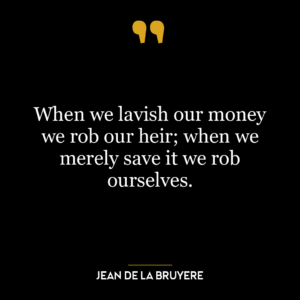This quote suggests a distinction between two types of people based on their understanding and prioritization of values. The ‘superior man’ is one who understands and values what is morally and ethically right. This indicates a person who prioritizes integrity, honesty, and righteousness over personal gain. On the other hand, the ‘inferior man’ understands what will sell, implying a focus on profit and personal gain, often at the expense of ethical considerations.
In the context of today’s world, this idea can be seen in various scenarios. In the corporate world, for instance, the ’superior man’ could be a leader who prioritizes the welfare of their employees and the ethical implications of their business practices over profit margins. Conversely, the ‘inferior man’ could be a leader who prioritizes profit over the welfare of their employees, the environment, or ethical considerations.
In terms of personal development, this quote encourages individuals to prioritize ethical considerations and integrity over personal gain. It suggests that the pursuit of wealth or success should not compromise one’s moral compass. It prompts individuals to reflect on their actions and decisions, asking whether they are being driven by righteousness or by a desire for personal gain.
In essence, this quote is a call for ethical living and decision-making, both on a personal and societal level. It challenges us to question our motivations and to strive for a higher standard of conduct, where what is right takes precedence over what is profitable or advantageous.







